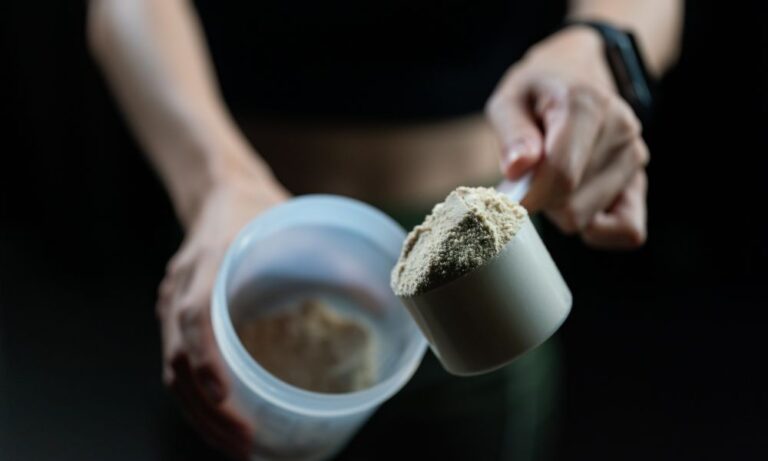If you’re trying to build muscle, hitting the gym is only half the story. The other half? Your diet. And at the center of that diet should be one nutrient: protein.
Whether you’re lifting weights, doing bodyweight workouts, or just trying to get stronger, protein plays a crucial role in how your body grows and repairs muscle tissue. Without enough of it, you might not see the results you’re working so hard for — even with the best workout plan.
Let’s break down why protein is essential in a muscle-building diet, and how to include it effectively.
Why Protein Matters for Muscle Growth
1. Muscles Are Made of Protein
Muscle tissue is built from amino acids, which are the building blocks of protein. When you train, especially during resistance workouts like weightlifting , you create tiny tears in your muscle fibers. This is completely normal and part of the growth process.
Protein helps repair and rebuild those fibers, making them stronger and larger over time. Without enough protein, your body can’t properly recover from workouts, and you may even start to lose muscle instead of gaining it.
2. Protein Triggers Muscle Protein Synthesis (MPS)
Muscle Protein Synthesis is the process through which your body builds new muscle. For MPS to happen, your body needs both the stimulus of exercise and an adequate supply of amino acids, which you get from eating protein.
3. It Prevents Muscle Breakdown
When you’re training hard, especially during a calorie deficit or weight loss phase, your body might start breaking down muscle for energy. Eating enough protein protects your muscles by giving your body a steady supply of amino acids, which reduces the risk of muscle loss and helps preserve strength.
4. Supports Recovery and Reduces Soreness
Proper recovery is key to consistent progress in any fitness journey. Whey protein, for example, is a fast-digesting option that helps muscles recover quickly after workouts. It provides a high-quality source of essential amino acids that your body can absorb efficiently. So, it ideal for post-workout shakes.
How Much Protein Do You Need?
The ideal protein intake for muscle building usually ranges from:
1.6 to 2.2 grams of protein per kilogram of body weight per day.
So, if you weigh 70 kg, you’d aim for around 112–154 grams of protein per day. You don’t have to hit this number in one go. Spread it across your meals and snacks throughout the day.
Whole Foods vs. Supplements
While protein supplements like whey protein are great for convenience, especially after workouts — they’re not a replacement for real food. A balanced muscle-building diet includes a mix of:
- Lean meats (chicken, turkey, fish)
- Eggs
- Dairy (milk, paneer, Greek yogurt)
- Legumes (lentils, beans, chickpeas)
- Soy products (tofu, soy chunks)
- Nuts and seeds
Supplements can fill gaps, not replace meals. Think of whey protein as a helpful tool, not the main dish.
Other Important Nutrients in a Muscle-Building Diet
Although protein is the star, your body also needs other nutrients for overall performance and recovery:
- Fish oil (rich in omega-3s) supports joint health and reduces post-workout inflammation — helping you train harder, with less discomfort.
- A multivitamin ensures you’re not missing out on essential vitamins and minerals, especially when following a strict training diet that may lack variety.
Including these alongside a high-protein diet can support better recovery, energy, and consistency in the long run.
Common Mistakes to Avoid
- Not eating enough protein: You need more than the average person if you’re training regularly.
- Getting all protein from one source: Mix it up to get a variety of amino acids.
- Skipping post-workout nutrition: That’s your prime recovery window. Even a quick shake helps.
- Relying too much on supplements: Whole food comes with more nutrients and fiber. Use protein powder wisely.
Final Thoughts
Building muscle is a mix of smart training, good sleep, and most importantly — the right diet. And at the heart of that diet is protein. It helps your muscles recover, grow, and perform better with every session.
Make sure you’re eating enough high-quality protein daily, adding supportive nutrients like fish oil and a multivitamin, and using whey protein as a convenient backup when needed.
With consistency and the right fuel, your body will reward your hard work in the gym with real, lasting results.

